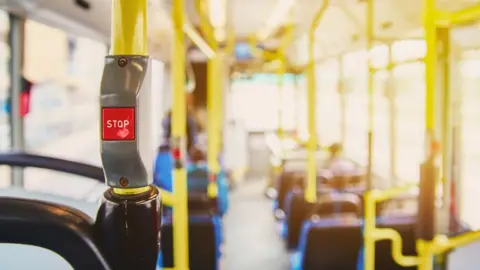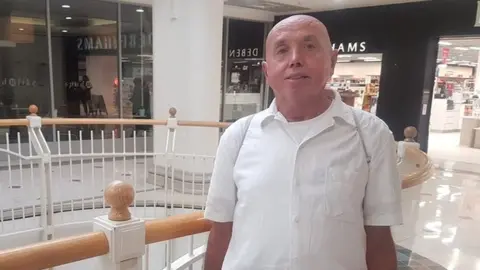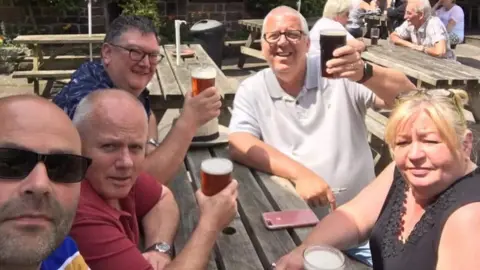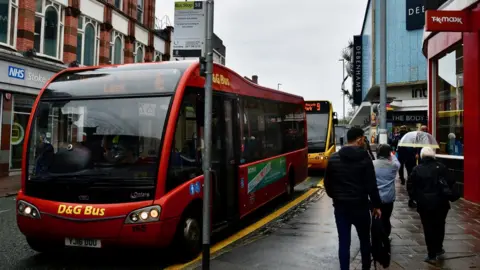We are Stoke-on-Trent: 'Buses are so bad, going out is pointless'
 Getty Images
Getty ImagesBuses in Stoke-on-Trent do not run late enough into the evening, offer an unpredictable service and are too expensive to use, passengers have told the BBC. So, how bad is it, and what can be done?
As part of the BBC's We Are Stoke-on-Trent project, residents have been speaking about the issues that matter to them, and one issue that keeps coming up is those single and double-deckers.
Some passengers say they have regular problems getting to work and college on time, while others say reduced services make them feel isolated. Waiting all day for a bus and two turning up at once seems to be the least of the difficulties.
The people having the problems
For 17-year-old college student Grace Smith, the services are not fit for purpose and cost "an arm and a leg".
Her mum, Claire, pays for her weekly bus pass which costs £15, and also covers an additional, daily charge of £4.40 as the teenager relies on two different providers for the two legs of her journey to Stoke-on-Trent College from her home in Cheddleton. It amounts to a total monthly charge of about £140.
On top of that, Miss Smith says the journey can sometimes take up to two hours - despite only living about 10 miles away.
Stephanie Mountford, 58, works at a Sainsbury's in the city and often cannot get a bus back to her home in Norton Green, even if she finishes at 17:30.
"It's just useless," she said.
Other passengers say they have seen services stopped entirely.
Adrian Tooth, 49, a course leader at Staffordshire University, used to catch the number 21 bus from Trentham to Hanley to go out on Tuesday evenings.
"The service was stopped out of the blue and people were just stripped of their independence," he said.

John Housley, 71, a joiner from the Staffordshire Moorlands, had a similar experience.
He said: "In the last two years I've seen the last bus from Leek go from being 22:30 to 19:30.
"It makes going out in an evening pointless - by the time you get there you've got to catch the last bus back."
What do passengers want?
Passengers say they want to see more coordinated services for different groups of users.
Grace Smith says there should be more support for young people through the restoration of the under-18 bus pass. It was scrapped by Staffordshire County Council over the summer.
The authority said the decision was due to an 80% drop in the uptake of passes since 2014/15.
You may also like:
 Adrian Tooth
Adrian ToothMr Tooth said operators should consider the impact of services on older people, while Mrs Mountford said she would like services to be run better for commuters.
Darren Shirley, chief executive of Campaign for Better Transport, says the government needs to create a national strategy to ensure communities such as those in Stoke-on-Trent are not left disconnected.
What do the bus companies say?

Bus services in Stoke-on-Trent are delivered by three operators.
One of the companies, D&G, says it recognises cutting back a service can prompt a "vicious cycle" of putting people off travelling, which may "lead to further journeys being withdrawn over time".
Operator First Potteries says its services are frequent, flexible and "90% run on time". It recently announced a raft of changes to its services, due to come into force from 29 September.
The BBC has approached the third operator, Arriva, for comment.
A Stoke-on-Trent City Council spokesperson says the authority is "in the process of creating a plan to deliver a better public transport provision, working with bus operators".
This article was created as part of We are Stoke-on-Trent, a BBC project with the people of the city to tell us the stories which matter to them.
